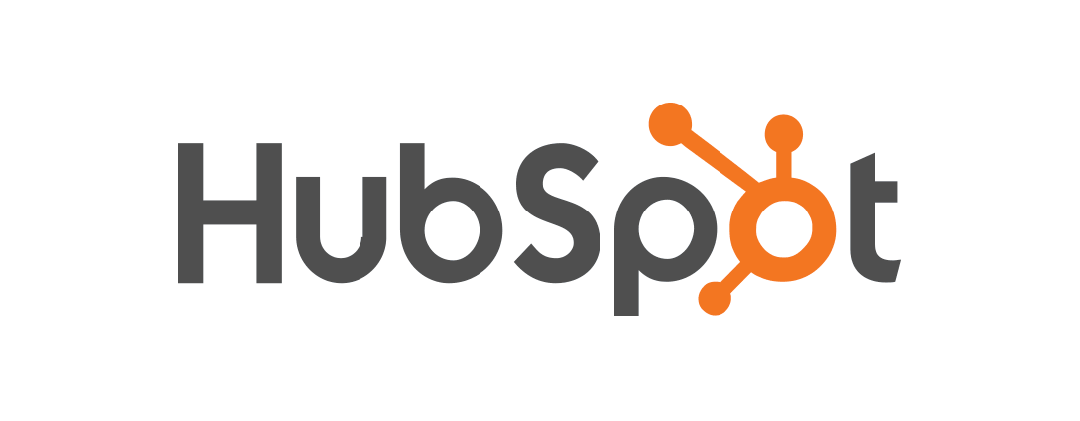Why Go Hubspot?

There are many reasons a business might choose HubSpot. Here are a few:
-
It’s All-In-One
-
Excellent Relationship Management
-
Hubspot Reviews: Good, Frequently Recommended
-
Easy Setup and Maintenance
-
Lots of Integrations
-
Hubspot Sales Hub is Surprisingly Robust
Let's explore in more detail.
Why Go Hubspot?
1. It’s All-In-One
HubSpot is a comprehensive, closed-loop marketing suite that’s relatively easy to set up and use.
2. Excellent Relationship Management
It’s great for businesses that want to segment visitors and stay in contact with them. HubSpot is built for businesses that not only want to generate leads or customers but who also want to turn them into evangelists. Test content for each segment and lifecycle stage to optimize at every step.
3. HubSpot Reviews: Good, Frequently Recommended
It’s one of the most recommended platforms in digital consulting due to its comprehensive yet easy-to-use nature. It’s not uncommon to see agencies using HubSpot for themselves and also setting it up for clients and teaching them how to use it. We’re one of those agencies, in fact. HubSpot is a good fit for a range of business models. Its reviews at G2 Crowd and elsewhere are solid.
4. Easy Setup and Maintenance
HubSpot closes the loop without the need to troubleshoot a bunch of software and tracking codes. It’s one of the simplest ways to gather valuable data and put it into use, in terms of both setup and maintenance. If a business can’t perform at its best with HubSpot alone, it may take just one additional solution to keep things running smoothly.
5. Lots of Integrations
When some extra functionality is required, there are lots of integrations available in the HubSpot “ecosystem.” Some common examples:
HubSpot Salesforce Integration
- Sync data or choose data types not to be synced.
- Send data, lead scores, etc. automatically.
- Leverage contact details from Salesforce in HubSpot CRM.
- Import revenue data from Salesforce to HubSpot.
- Use the Salesforce features that HubSpot doesn’t have, like advanced reporting and customization.
HubSpot for WordPress
- Take advantage of HubSpot forms and chat from inside WordPress.
- Sync contact information and develop leads.
Hubspot Ads on Facebook, LinkedIn, and other PPC Integrations
- Bridge the gap between ad targeting and lead management.
- Align keywords and targeting with website content for a consistent narrative.
- Create ads inside HubSpot.
6.HubSpot Sales Hub is Surprisingly Robust
While Salesforce might be the best choice if a lot of customization is needed, Sales Hub is more than a basic sales CRM. It includes an AI system similar to Salesforce’s Einstein, good chat and call integration, lead scoring, and processes that save time. As a sales rep at iContact puts it:
“It saves me a lot of time. I can just enroll a prospect in a sequence instead of creating reminders and sending manually. And I can see stats on what emails and sequences get the best results.”

Want to learn more about HubSpot?
HubSpot Disadvantages
While we love HubSpot, we are honest about its disadvantages – one tool can't (shouldn't) fit all use cases.
1. It Can’t Solve Extremely Complex Problems
HubSpot won’t replace a dedicated team that solves extremely difficult data analysis problems. It isn’t a political consulting firm that will design a cutting-edge targeting system for an entire nation of voters, for example. It does, however, provide a convenient set of tools that can do what most businesses need to do in terms of marketing, sales, content, and even service.
2. Its Individual Products Might Not Be a Fit
It doesn’t make sense for many businesses to pay for an individual HubSpot application (e.g. Sales Hub) in stand-alone terms due to the pricing. HubSpot is a suite and most of the time, it will be utilized as one.
3. Not Always Best for Small Businesses
HubSpot might not be the best choice for a startup or small business. The subscription fees are flat and they’re not especially low. Competitors such as Salesforce offer rates per user, which start off much lower, for better scalability.
4. Not for Buttoned-Up Enterprise Marketing Departments
When a business or organization is already functioning well in every respect – from generating traffic to extending customer lifetime value – switching to HubSpot would be a case of “fixing something that ain’t broke.” Stick with what works unless there’s a good reason to switch because switching costs time and money.
What Solutions Compare to HubSpot?
HubSpot does a lot. It’s a customer relationship management platform (CRM), a content management system (CMS), an analytics tool, a chat app, a ticketing app, and an e-commerce management tool. A key benefit of HubSpot is that all of this is available as a package. It’s all there once the marketer has signed up. Signing up is probably the most difficult part of getting started with HubSpot due to the choices available. A business can subscribe to the CRM, Marketing Hub, Sales Hub, and Service Hub separately or opt for a bundle that includes all of them. As with any set of products, the individual apps seem overpriced compared to the suite.
Few solutions are as capable and as intuitive as HubSpot’s full suite, but there are alternatives. In general, applications that focus on one thing (e.g. sales management or content management) tend to be more sophisticated and more adaptable than applications that are tailor-made for a suite. But that’s not always a bad thing. Simpler solutions can be very intuitive, which can save the business lots of time and money.
Some popular brands that are comparable to HubSpot’s products are Salesforce CRM (sales), Drupal (CMS), Zendesk (ticketing), Marketo (analytics, automation, etc.), and Mailchimp (CRM, email marketing). Many businesses are experienced with a specific CMS, sales management application, or ticketing system and aren’t keen on switching. Therefore, they probably won’t be immediately attracted to HubSpot’s full suite and its costs. Most of the brands above in this paragraph can be used together to fulfill the needs of the business. Some integrate better than others, though.
As for full-suite solutions that at least include a CRM, CMS, and marketing tools, there are a few options. Salesforce and SharpSpring are examples. To directly compare every aspect of them wouldn’t be particularly helpful since they’re all updated frequently and because there are so many unique tools and features that have subjective utility and attractiveness. To make a decision, managers should prioritize the business’s needs and then check out what each solution offers, putting the most weight on the highest priorities.

